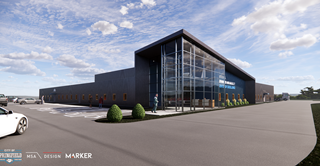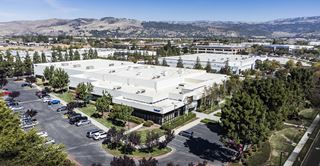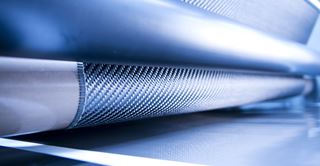Success Stories
World’s First Fully Recycled Thermoplastic Component Takes Flight!
In June 2020, GKN Fokker announced the world’s first successful flight of an aircraft containing parts made using recycled thermoplastic composites. This historic milestone was achieved as the result of the TPC Cycle project – a consortium of industry partners led by the ThermoPlastic composite Application Center (TPAC).
The part – an access panel for an experimental rotorcraft - was manufactured using reclaimed Toray Cetex® TC1100 carbon/PPS continuous fiber reinforced thermoplastic composite materials, which underwent an innovative two-step recycling process to create an extruded “dough” which is then compression molded into a final part, whilst also achieving high mechanical properties.
The access panel featured molded stiffening ribs, thickness variations, and molded-in holes with bosses to ensure the part featured the strength required for taking flight. These features also meant the part was easy to fit to the aircraft while maintaining the necessary strength.
The implementation of this part on an aircraft that successfully took flight was a huge moment for the application of recycled thermoplastics. It proved that reclaimed Toray Cetex® thermoplastic composite material could enable the creation of a lightweight part for aerospace while forming a closed-loop manufacturing process.
A new recycling route for thermoplastic composites
The TPC-Cycle Project was a 4 year program that set out to innovative the process of thermoplastic recycling to the point where it can be practically implemented by industry to reduce their carbon emissions at an affordable price. This project considered how the recycling process can be completed while retaining the high mechanical properties of thermoplastic composite materials.
In this project, surplus continuous fiber reinforced thermoplastic composites (TPC) were reclaimed during part manufacture. The reclaimed trimmings were shredded into flakes which were then processed to produce a mixed dough of molten polymer and long fibers. This dough was then compression molded to produce a recycled thermoplastic part (see diagram 1).
The TPC-Cycle project demonstrated that producing recycled thermoplastic composites was viable economic route for companies with many benefits:
- Net-shape manufacturing
- Production of complex shapes
- High mechanical properties by retaining long fiber lengths
- Higher buy-to-fly ratio
- Shorter cycle times that can cool and solidify within minutes

Diagram 1
Together we advance
The TPC-Cycle project demonstrated the importance of partnership throughout the value chain in achieving a successful adoption of recycled thermoplastic composite materials. The success of the project followed many years of invested research and development by Toray and TPC-Cycle project partners. In 2016, Toray (at the time TenCate) Advanced Composites, together with the TPRC and GKN Fokker, won the JEC Innovation Award for Aeronautics for their smart recycling of thermoplastic composites.
Toray Advanced Composites has also published a recycling white paper based on their internal research and development, conducted in parallel with the TPC-Cycle project.






